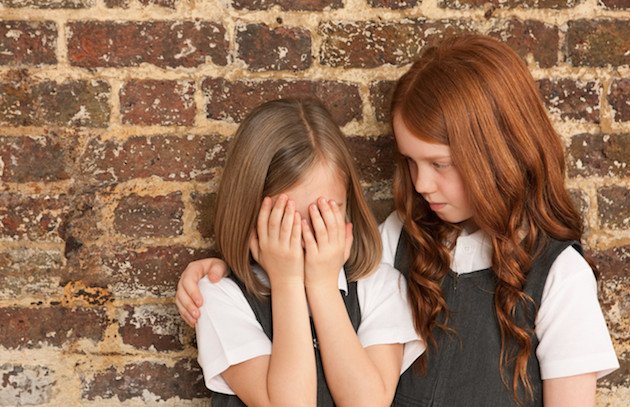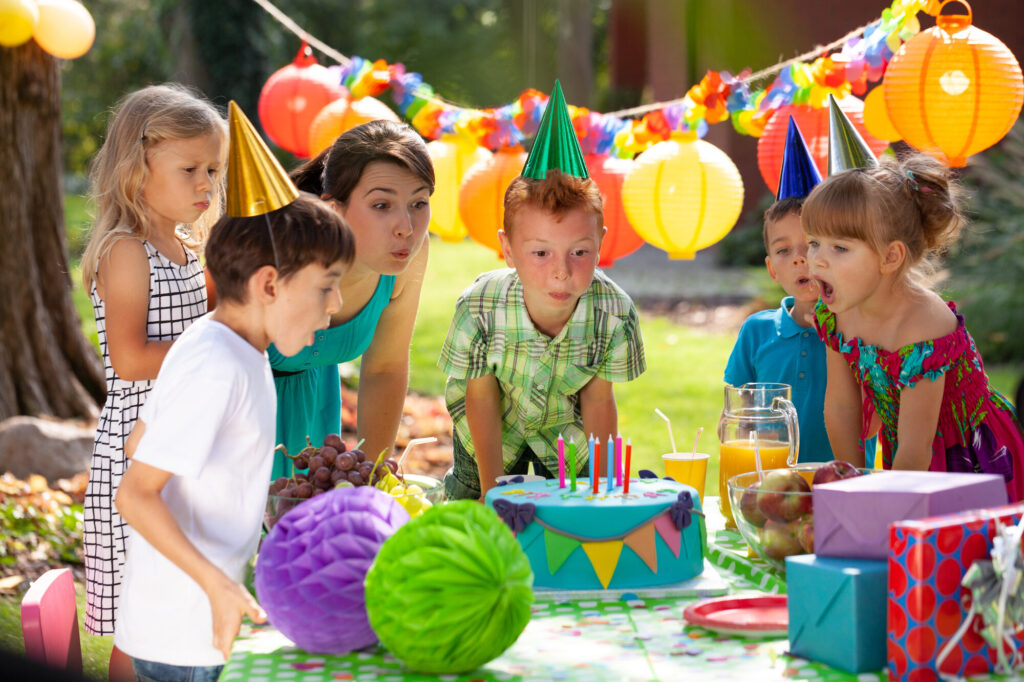These Tips May Work for Children Who Have Difficulty Making Friends

If your child still prefers to play with you rather than with their friends, something may be wrong. So how can you reverse this?
Does your child have trouble making friends at school and in the park? Does he prefer to play with you instead of playing with his peers? Okay, but why? “Is it because our daughter doesn’t like to play with children?” This is wrong, because the correct answer is: He does not know how to be friends with children. Here is a step-by-step guide to teaching your child how to be friends.
1. Try to Understand What the Problem Is

Pediatric behavioral health expert Kristen Eastman says, “If your child isn’t making friends like other children of the same age, we shouldn’t be in a rush to label them as withdrawn and shy. Go with her to the park and observe what step of social communication she has difficulty with while she’s sliding down the slide or doing other things.
Even better: You can design a game that many children play together, such as hide and seek and search for a ball, catch it and analyze your child’s behavior and attitudes as they play these games with you and their friends. Is it different at home or different between children? The problem is that he is concerned about being in the community (you have an opinion about your child).
Prefers to be alone and watch rather than join the children during the game? (He may lack the practice of communicating with people first.) Does she make an effort to not have another child with her while she is sliding down a slide or climbing stairs? Instead of sliding down the slide with someone behind him, he gives his turn to slide and everyone prefers to slide. (He may have a fear of falling, injury, or contamination.)
Does he aim to the edges of the group rather than the center when running or collecting during the game? (He may have sensory integration problems. Someone touching him can trigger a feeling of discomfort he can’t stand.) This list gets long, so I’m cutting it out here so that the article doesn’t get too long.
2. Do Activities

Practice meeting someone new at home with toys or among yourself. Look, this is very important. A kid growing up in an apartment doesn’t know what to talk about with someone his age. You have to teach them what to talk about.
The first step is to meet. first mission. “Hi, my name is Naz, what about yours?”
Take a teddy bear in your hand and introduce the bear to all the other toys one by one. then have one of the other toys do the same. then ask him to do the same. repeat this for a few days. “hello my name is cute teddy bear what is your name?” at least 50 times Be sure to ask the question.
The second task: to teach the first hook question to move on to more detailed conversation after learning the nouns. I like pink the most, do you? I like to eat watermelon the most, do you? I like watching momo cartoons the most, do you? Among the characters of Elif and her friends, I love Selim the most, do you? aspect… What are the most easily asked and answered questions by children?
Another issue: my father is a very gamer. We love to do puzzles together. What are you playing with your father My father makes very good pancakes. Do you like pancakes? we have a cat. Do you like cats? After helping your child make friends and starting the first topic of conversation and lots of exercise, we come to step 3…
3. Understand Your Child’s Emotions, Become an Emotion Coach

Especially if you have a child just starting school, you need to channel his feelings. Help her name the feelings she experienced at school. They won’t want to talk. You can do this through the game. There has been a big change in the life of a child who has just started school. this is a very marginal change. and the social skills he developed in the early years of school and the role he accepted in society, the roles that will go with him throughout his life. So if you have a child just starting school, your first priority in life should be your child. play with toys.

Let the theme of your games be children who are just starting school. He directly tells about some of the things he experienced during the game. Pretending to be a game through one of the toys, he shows you some things and some doesn’t. but while you are playing he thinks “yes i felt that way too but that’s normal. that’s how bead dealt with this problem. I can deal with it too”. For a few weeks, do plenty of exercise at home with toys such as puppet theater, about possible scenarios at school: listening to lectures, going to recess, being the only child who doesn’t come with anyone during recess, coming. going to the toilet in class, getting hungry in class, missing her mother in class etc…
4. Teach Your Child to Empathize
If you want your child to have a good social environment and to establish healthy and abundant bonds with their peers, teach them to empathize. If there’s a kid in the class that no one goes to for recess, go to him and tell him how happy he’ll be to be the first person to talk to him. Tell her how beautiful she is over and over again. Teach him to have the courage to take the first step.

When you greet a shy and shy kid, talk to him, take care of him for a few breaks, he not only really helps that shy kid but also becomes a loyal friend. Teach him to deal with unorthodox kids rather than the most popular person in the class. this gives him the opportunity to become the leader of his own small group. It is very important for him to be in groups where he can be alpha, rather than being beta next to alpha. He needs to experience both in order to choose which role will make him feel better.
5. Have a Roommate Meeting for Your Child Who Hasn’t Started School Yet
Call parents of children you meet online or at the park with their children during the day. They will feel more secure in their own home. Since all the toys and the room are his, he will be the natural leader of the playgroup. Kids will meet and play with it without having to take the first step to meet the kids. this is the easiest and most effective way to teach him to play and communicate with his peers.

6. Teach To Invite And Reject
Teach them to invite their friends to a game or talk. Instead of feeling embarrassed and disappointed when you get a negative response to your invitation, teach that it’s not about you, it’s about the other person not wanting it at the moment, and there can be many reasons for this. Again, use toys for this: The bear offers the rabbit to go out to the garden to play ball during the break, the rabbit refuses. The bear is very sad. gets disappointed. he thinks nobody wants to play ball with me… he exaggerates his sadness and disappointment.

Later, after the bear is gone, the rabbit goes to the toilet. Actually, the rabbit didn’t play with the bear because he was urinating. but she’s embarrassed to say she peed. At the next break, the rabbit calls the bear, this time. but this time the bear has pee. bear does not accept. why don’t you want to play games? Or is he saying you came to pee too? bear says yes. And then he realizes why you didn’t really play with him, like… By playing games with this and many similar scenarios, teach him how to feel and what to do when he receives a negative response to invitations and invitations to the game.
7. Tell Your Child It’s Hard to Make Friends
In order not to feel inadequate, explain to her that this is normal and that there are many children who experience this condition.

8. Teach Your Child There Are Different Types of Friendship
Teach children that friendship is not one-size-fits-all. There are many different types of friendships, just as there are many different fruits such as bananas, apples, pears.
- Some friendships are friendships of playing ball. Some friendships are chat friendships.
- Some friendships are friendships of helping each other. Normally, you don’t talk much, you don’t play games, but when you can’t find your eraser, you come and ask him.
- Some friendships are friendships of saying hello every day.
- Some friendships are friendships that only make you smile at the sight. so so…

9. Teach Your Child to Maintain Existing Friendships
At school, you may meet the family of a friend you feel relatively close to. You can invite them to your home. Spending time outside together brings them even closer. one is infinitely larger than zero. If he has at least one close friend, he is more likely to connect with other children through him.

10. Do Not Be Hasty in All These Processes, Do Not Force The Child
Do not blame the child for not being able to do it, be careful not to damage his self-confidence even more when you say that I will motivate him.
Remember: Your children did not choose to grow up in an apartment without talking and playing properly with anyone but you and their toys. this happened because of your choices and obligations. he is not shy. Maybe he’s just a kid who doesn’t know how to do it.






